Welcoming a new addition to your family is an extraordinary blessing. Along with the joy and love that fills your home, there are practical matters to consider, such as childcare. When you entrust your precious little ones into the hands of capable, nurturing early childhood educators, it’s an investment into their growth, development, and well-being.
Investing in quality childcare is more than just a financial decision; it’s about providing your child with an enriching environment that promotes their cognitive, social, and emotional development. Recognising this important investment, parents often wonder, “Is childcare tax deductible?”. We understand that childcare can be a significant portion of the family budget, which is why many families are interested in learning about the financial aids, tax benefits and deductions associated with childcare in Australia.
The short answer is no, childcare is not tax-deductible in Australia. The Australian Taxation Office (ATO) does not view childcare as a work-related expense. This is because the decision to incur childcare costs does not come directly from the necessities of an individual’s job but from personal circumstances. Even though many parents need to arrange childcare to maintain their employment, the ATO has made it clear that it does not qualify as a deductible expense.
While this might initially seem disheartening, it’s important to remember that there are various financial support options available to families, such as the Child Care Subsidy, to help offset these costs. The Australian Government recognises the importance of accessible, high-quality childcare and offers a range of subsidies and benefits to eligible families.
The Parenting Payment is an income support payment for parents or guardians to help with the costs of raising children. It is available to single parents with at least one child aged under 8, or partnered parents with at least one child aged under 6. Eligibility criteria also include income and assets tests. To apply, individuals should create a Centrelink account through the Department of Human Services.
The Family Tax Benefit is a payment to help eligible families with the cost of raising children. It is made up of two parts – Family Tax Benefit Part A, which is paid per child, and Family Tax Benefit Part B, which is paid per family. The eligibility and payment amounts depend on the family’s income, the number of children and their ages, and other factors. Applications can be completed online through myGov by linking to Centrelink.
Remember, investing in your child’s early education is a significant decision, and every dollar spent contributes to their growth and development. By staying informed and planning ahead, you can ensure you’re making the most of your investment.
At Little Scholars, we understand the financial commitments that come with providing your child with high-quality care and education. We believe that each child deserves the best start in life, regardless of their family’s financial situation, and we work diligently to uphold this principle in all aspects of our work.
If you have any questions regarding our childcare fees or if you’d like to learn more about our campuses, please do not hesitate to reach out to us. We’re more than happy to arrange a tour or discuss the individual needs of your family.
For parents leaving their babies or young toddlers in care for the first time, it can be a stressful experience. When the paid maternity leave ends, parents must make the decision of whether or not both parents will work outside the home. The choice to leave their young child in early learning and care can create a number of concerns, one big one being how their relationship with their young child will be affected if the parent is not spending the majority of the child’s time with them. These are valid concerns, but research has suggested infant attachment to their parents is not generally affected by being in care, so long as the parents have a strong bond with the child when they are with them.
Understanding Attachment Theory
Attachment theory was first introduced by John Bowlby, a British psychoanalyst and psychiatrist in the 20th Century. Bowlby observed that early attachments could significantly affect a child’s emotional development and adult relationships in later life. He concluded that children between six and 30 months were very likely to form emotional attachments to familiar caregivers, especially if the adults are sensitive and responsive to child communications. This led him to propose the Attachment Theory after he studied the negative impact of maternal deprivation on young children.
Mary Ainsworth, an American psychologist who worked under Bowlby early in her career, later devised an assessment technique called the Strange Situation Classification (SSC) to investigate how attachments might vary between children. Her research in Uganda, then her well-known Baltimore Study in the 1960s, in which she noticed distinct individual differences in the quality of mother-infant interactions over time, led her to categorise these different attachment styles into three types: secure attachment styles, insecure attachment styles, and not-yet attached. She found a connection between maternal sensitivity and secure attachments. Sensitive mothers were familiar with their babies, provided spontaneous and specific detail about their children, and babies of sensitive mothers cried less and felt free to explore in the presence of their mother. Generally, she concluded that babies of sensitive mothers have secure attachments.
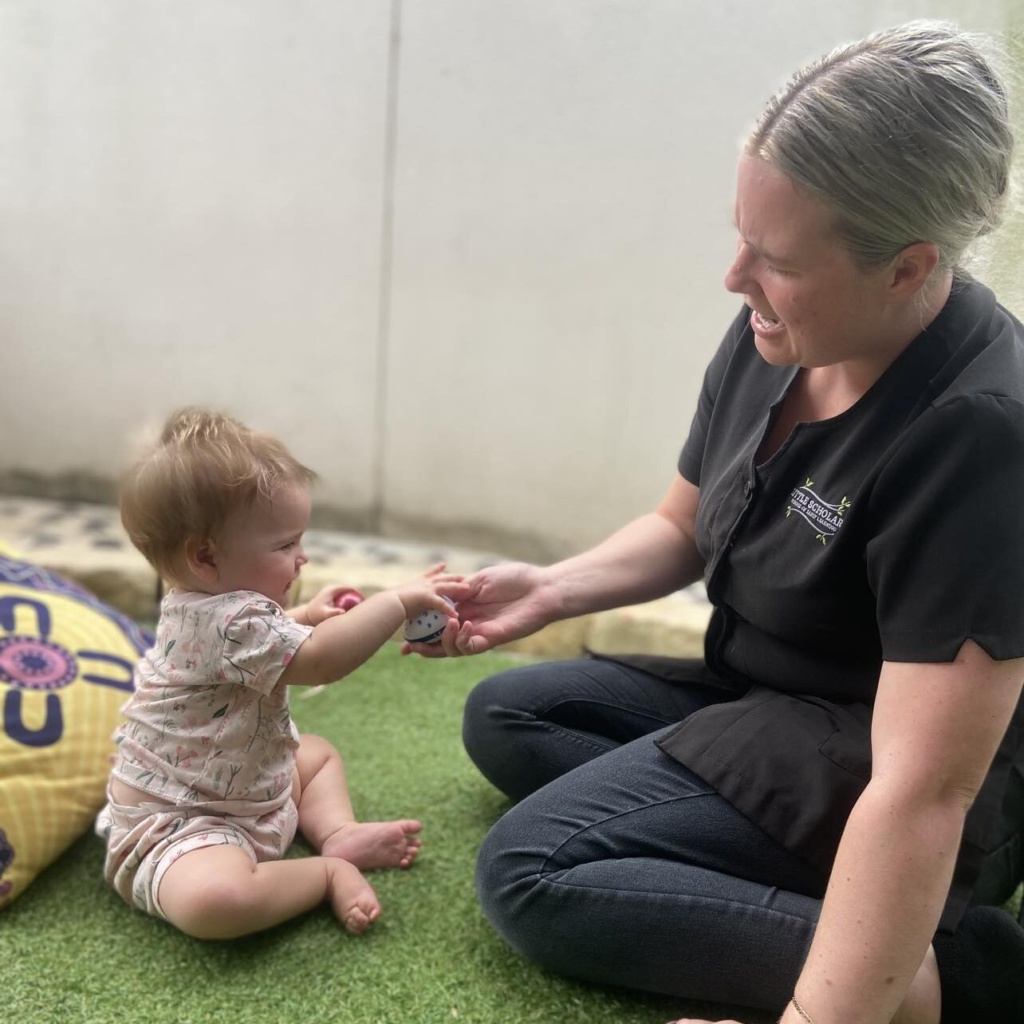
While Bowlby’s initial findings focused on maternal deprivation, later studies have contradicted his emphasis. Schaffer & Emerson (1964) found that specific attachments started at about eight months and shortly thereafter, the infants became attached to other people. By 18 months, very few (13%) were attached to only one person, and some had five or more attachments. Rutter (1972) noted that several indicators of attachment, such as protest or distress when an attached person leaves, have been shown for various attachment figures – fathers, siblings, peers, and even inanimate objects. Weisner, & Gallimore (1977) found that mothers are the exclusive carers in only a very small percentage of human societies, and often there are a number of people involved in the care of children, such as relations and friends. Van Ijzendoorn, & Tavecchio (1987) argue that a stable network of attachment figures is more important than the number of figures.
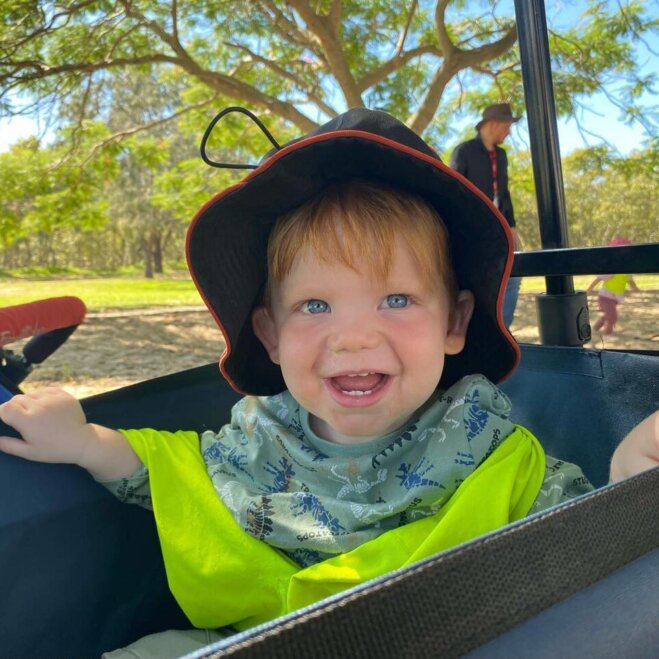
Some studies in the 1970s and 1980s found negative effects on young children in daycare and attachment, but arguments against those studies included that few mothers worked outside the home during those times, and the quality of the care facilities themselves were perhaps lower than you’d see today. Since then, much has changed, and research has shown many positive effects of early learning and care for young children, including social relationship development.
One study conducted in Norway found that infants who were in early learning settings scored higher on tests measuring cognitive and language development than infants who were cared for at home. Another study conducted in Canada found that children who attended high-quality care were more likely to to have better cognitive and language development than those who attended lower-quality care or stayed at home.
Both the Norwegian and Canadian studies highlight the importance of high-quality early learning for children’s cognitive and language development. High-quality early learning centres provide a safe and stimulating environment where children can learn and develop essential skills. They also offer opportunities for children to interact with other children and adults, helping them develop social skills and emotional intelligence.
In Australian early learning settings, we follow a National Quality Standard which lays out seven quality areas on which centres should meet or exceed. The fifth quality area is ‘relationships with children’ and its intent is to promote relationships with children that are responsive, respectful and promote children’s sense of security and belonging. Relationships of this kind free children up to explore the environment and engage in play and learning.
Please rest assured, when you’re leaving your child at one of our campuses, your child’s wellbeing is our number one priority. We support children to develop in a holistic manner, including socially, cognitively, physically and emotionally. If there are tears (from either of you!), we’re here for both of you, and know it means your relationship with your child is not only in tact, but flourishing.
Read more:
It’s no mystery that food plays a vital role in a child’s growth, and healthy eating makes a healthy child. While eating a small number of unhealthy foods like sugary sweets and processed snacks won’t cause much harm, a balanced diet filled with fruits and vegetables is best. The foundations of a healthy diet contain nutrient-rich foods that improve your child’s physical health and promote their mental capabilities, keeping them alert and energised throughout the day.
At Little Scholars, we understand the importance of a healthy diet in enabling a child to thrive and meet their fullest potential. We have a healthy four-week menu rotation made by our fabulous chefs who prepare fresh, nutritionally balanced meals for your children.
So if you want to guarantee the health and success of your child, be sure to book a tour today.
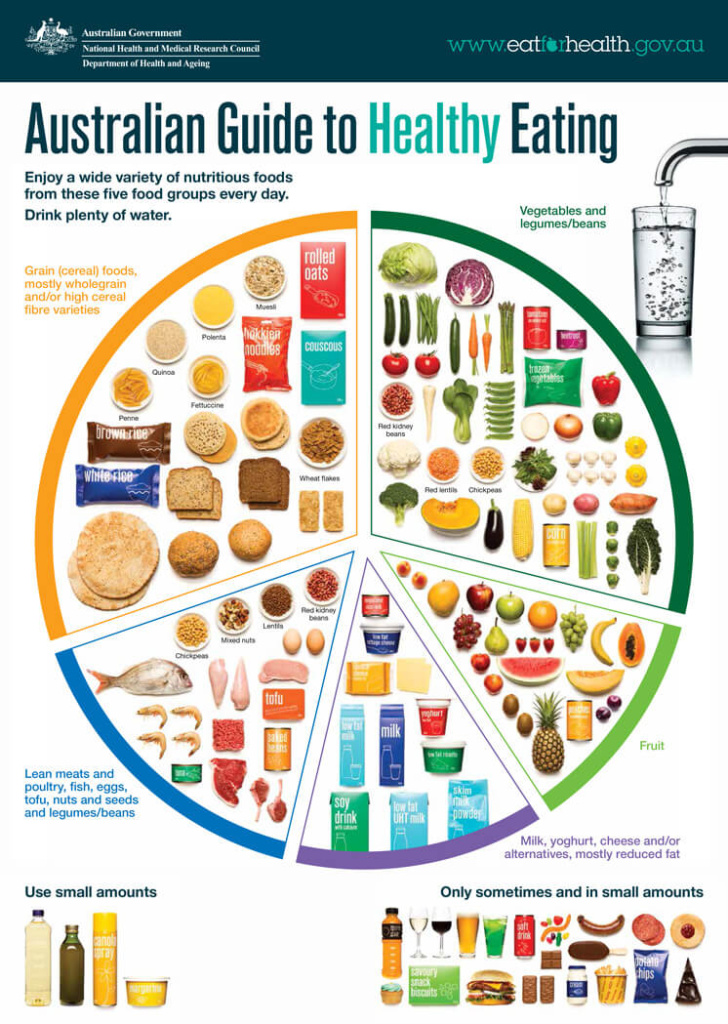
A key to healthy eating for children is ensuring they enjoy a wide variety of nutritious foods. The Australian Guide to Healthy Eating recognises five core food groups for complete nutrition. These groups are divided into proportions to help you understand how to help your child eat healthily throughout the day. Each food group in the correct amount gives your child an excellent chance to get the right amount of nutrients and vitamins their body needs to function well.
Based on the five food groups in the Australian Guide to Healthy Eating, let’s look at what food your child needs to stay healthy.
There are many benefits of healthy eating for children in early childhood, and they include:
Every child has a different natural body composition, but healthy eating helps keep your child’s weight within the appropriate range. However, you shouldn’t focus too much on your child’s weight as it might communicate unhealthy eating habits.
As your child grows, they will need the right amount of food and adequate nutrition to ensure normal growth and development. For example, sufficient calcium and vitamin D in their meals will give them strong and healthy bones. Children aged 4 to 8 need up to 700 milligrams of calcium for healthy bone development, according to the Queensland Government’s calcium for children’s guidelines.
One of the best ways to incorporate these nutrients into their diet is through foods such as low-fat dairy products. In addition, fortified cereals, salmon, and leafy greens are also excellent sources of calcium.
Children need to have robust immune systems to be able to fight off ailments like colds and the flu. The right proportion of fruits and vegetables helps boost their immune system.
Children need a healthy diet to optimise their brain activity as they grow, making them perform and focus well at school. Some essential foods that can help improve brain functioning include fish, eggs, nuts, and seeds, all great sources of vitamin E and healthy fats.
Here are 3 great ways to improve your children’s healthy eating habits:
Involving the little ones in the cooking process can be a fun way to help them learn about food. For example, you can get them to mix up a salad or help peel some vegetables, ensuring that everything is done safely and responsibly. Our staff regularly plan cooking activities such as making fruit sticks, fruit yoghurt iceblocks and other yummy healthy treats.
Another idea is to allow them to occasionally choose what the family will eat for dinner or lunch – although set some ground rules so you don’t end up having ice cream for dinner!
When you think of childcare, you might not necessarily think of early education, but that’s precisely what Little Scholars is doing; providing high calibre early education for the critical first five years of a child’s life, and at the same time, changing society’s perception of what childcare, or early education, is.
Little Scholars has always considered itself as a leader in the sector, but we elevated the quality of education with the addition of Susan Cooper, our group pedagogical leader one year ago.
Pedagogy is a form of teaching strategies in the practice of educating. It’s the techniques, strategies and approach taken by educators to let learning and development to take place. Pedagogy refers to the interactive process between the educator, the learner and the learning environment and provides reason to the design of learning spaces, materials, and resources on offer. Pedagogical leadership supports educators in relating their pedagogy to content knowledge and educational theories.
My aim is to support educators in entering the child’s world, enabling them to reflect on their practices and build capacity to support the child’s development.
– Susan Cooper, group pedagogical leader for Little Scholars
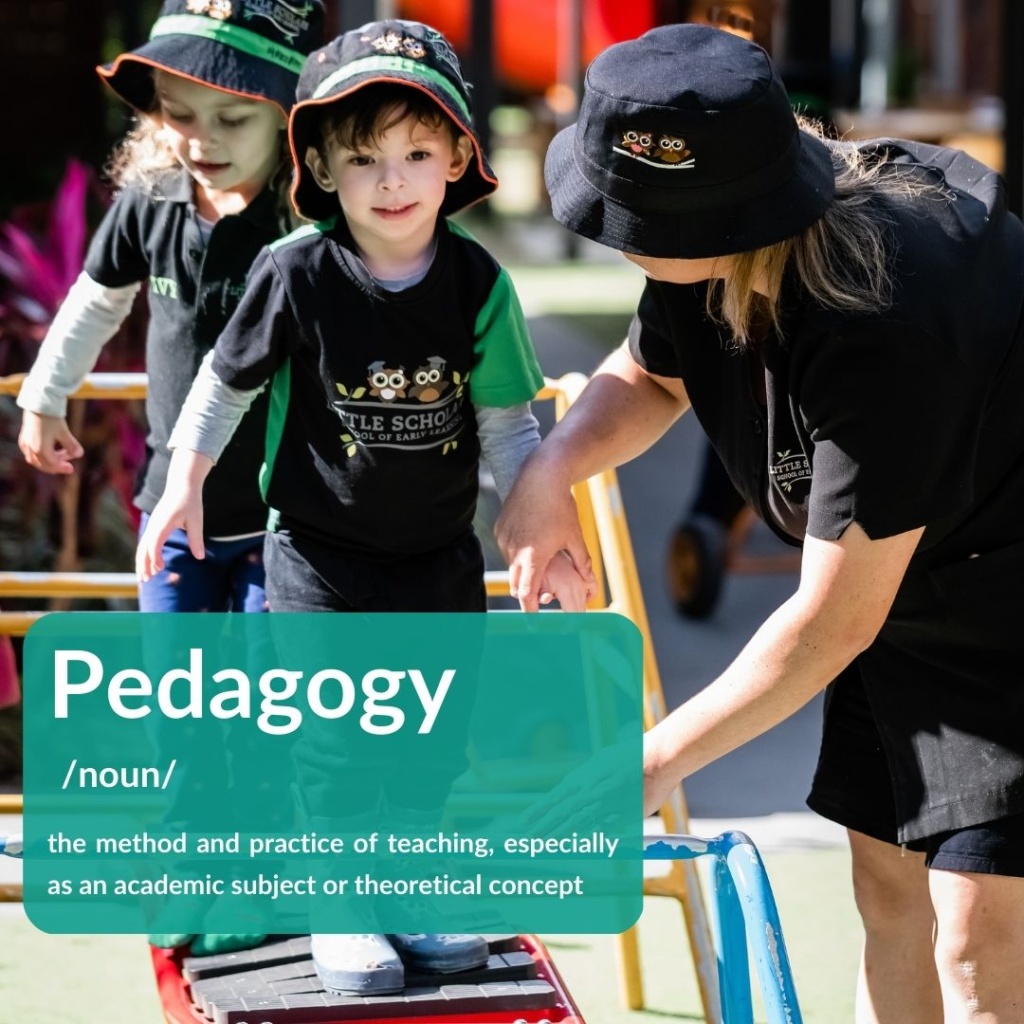
In the year since Susan joined us, she’s gone above and beyond to support our educators. Through her pedagogical leadership, Little Scholars has raised the benchmark of its overall quality of teaching, and recognises that providing children with strong foundations for ongoing learning and development is underpinned by a strong pedagogical practice. She inspires educators to employ new approaches to their teaching against up-to-date research, has helped translate the Little Scholars values and principles into practice and has without a doubt increased the quality of experiences and interactions across our campuses.
But the role was daunting at first, according to Susan.
“Having come with approximately 16 years’ experience in having been in varied roles across the sector within early childhood, my love of sharing knowledge and inspiring others drew me to apply to this role,” Susan says. “My experience in playwork allows me to see the true value in children’s play, the need to create spaces and support the learning and approach to working with children to support and facilitate play in its true essence. What really resonated with The Scholars Group and my own personal values and beliefs, was placing children as the core and central to all that we do.
“I see myself as an advocate for children’s rights, being the voice for many and striving to excel toward quality outcomes.”
The group pedagogical role is focused on mentoring and guiding teams in their practices and challenging new ways of working, to support innovative curriculum ideas, while supporting children’s learning across all Little Scholars campuses.
“I found the team to be so supportive and receptive to change, which has allowed me to share my vision, passion, and skillset,” Susan says.
With Susan’s support, our Deception Bay campus was rated exceeding against the National Quality Standards (NQS) in late 2022. A thrilling result, but not without a lot of preparation. Susan guided Nat, the campus manager, and her team, in the Assessment and Rating Process.
“It was critical that the team worked collaboratively toward a shared goal. This involved building strong relations with the team to build trust and mutual respect. This partnership saw me engage with all stakeholders, while we worked toward targeted goals and worked through evidence-based data to the exceeding themes,” Susan says.
Strong knowledge of theory and pedagogy underpinned the quality outcomes, according to Susan. Another great achievement Susan says, was the team being ranked 3rd out of 3,126 early learning centres across the state.
“My role is to take an active role in the development of pedagogy in the early childhood context. I primarily work alongside teams, across our 13 campuses to provide the opportunity to share pedagogical practice, leading knowledge to research and child development,” Susan says. “Not only does pedagogy inform direct work of teaching, but also the more indirect work of leadership. This develops a community of practice, where professional educators can share ideas and knowledge and engage in peer learning.”
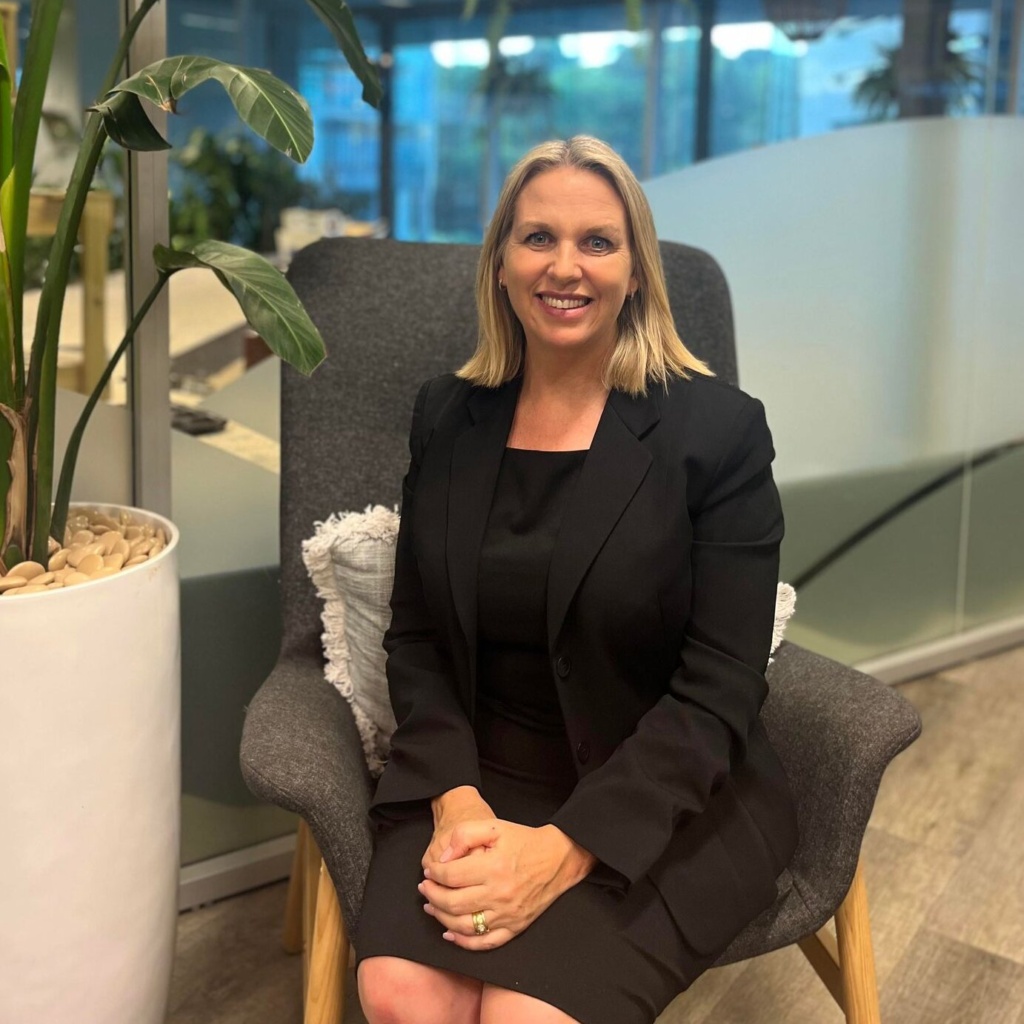
“Little Scholars has always been a leader in our field, due to our commitment and passion to the early years. With the addition of our Group Pedagogical Leader, the effectiveness of our educational program and practice has been elevated to a level we didn’t think was possible,” says Jae Fraser, founder of Little Scholars.
“In Susan’s role she is supporting and mentoring the team to influence children’s learning by fostering family engagement, ensuring fidelity to the Little Scholars curricular philosophy, using data to evaluate the effectiveness of our learning program, and exceeding standards established to optimise learning effective environments,” says Jae. “We couldn’t be happier with the results of this new role just after one year, and we are so excited to see the future.”
Susan’s goals for her role are simple: to continue to strive toward excellence, raising the benchmark in early childhood and placing children at the forefront of everything Little Scholars does.
“I take great pride in the relationships I’ve developed, the partnerships I have established, creating a safe space for the children and educators I work with,” Susan says reflecting on the past year. “Our impact is significant, and I’m thrilled to witness the progress in both the children and educators. I feel grateful to be part of such meaningful work, knowing that we’re making a real difference in the lives of these children.”
We have the very best early education educators at Little Scholars School of Early Learning. It’s our great honour to present our 2023 Little Scholars Employee Award winners. 🎖
These outstanding recipients, through some challenging times, have demonstrated their dedication, commitment and have gone above and beyond this year with fellow educators, children, and parents. Time and time again they show us, their peers and the families who they have the privilege of looking after their enthusiasm, their eagerness to learn and grow, and their unfaltering dedication to educating and developing small humans.
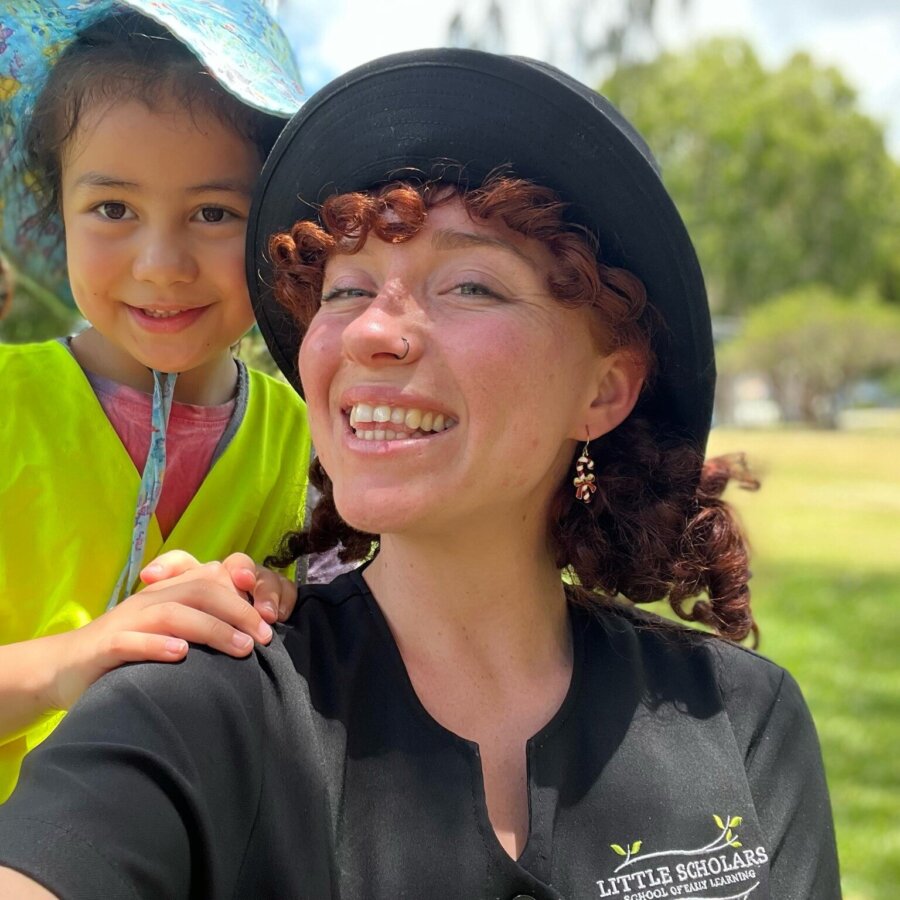
Inspire – Little Scholars Pillar Award 2023
Learn more about Ella
How long have you been an educator, Ella?
I have been an educator for four years now, and with Little Scholars since my placement when I began my certificate 3 at TAFE.
How did you start your career?
I had been looking at Little Scholars as a centre for my daughter since I was pregnant and fell in love with it from the get-go. Since beginning to have my daughter at the centre, I saw the love and care that the educators gave the children. Working with children had always been on my agenda as I used to study to be a music teacher and knew I could do so much more as an early childhood educator to assist the children in excelling in all areas before beginning “big school.”
What did being recognised for the inspire award mean to you?
The award completely blindsighted me as I turn up to work each day just to do my best for these little humans so to be recognised for my relationship with the children in my centre was so special to me and really instilled my role within the company and the importance I hold alongside my other educators in this industry.
Ella’s nomination
Ella is an educator with the Little Scholars Deception Bay campus, which recently was assessed Exceeding under the National Quality Framework for Early Childhood Education and Care.
In Ella’s nomination to us, it said, “Ella is an inspiration for all in the Deception Bay community. We had some outstanding feedback from the department through our assessment and rating process. Before the process even started, the assessor had mentioned the passion and authenticity observed in Ella’s interactions with our children, families and community. In the assessor’s words – ‘she could sit and watch Ella all day long.’ From one of Ella’s colleagues, ‘the educator she is, is who I aspire to be in my future teaching career. She is strong, but also so caring to each individual child.’
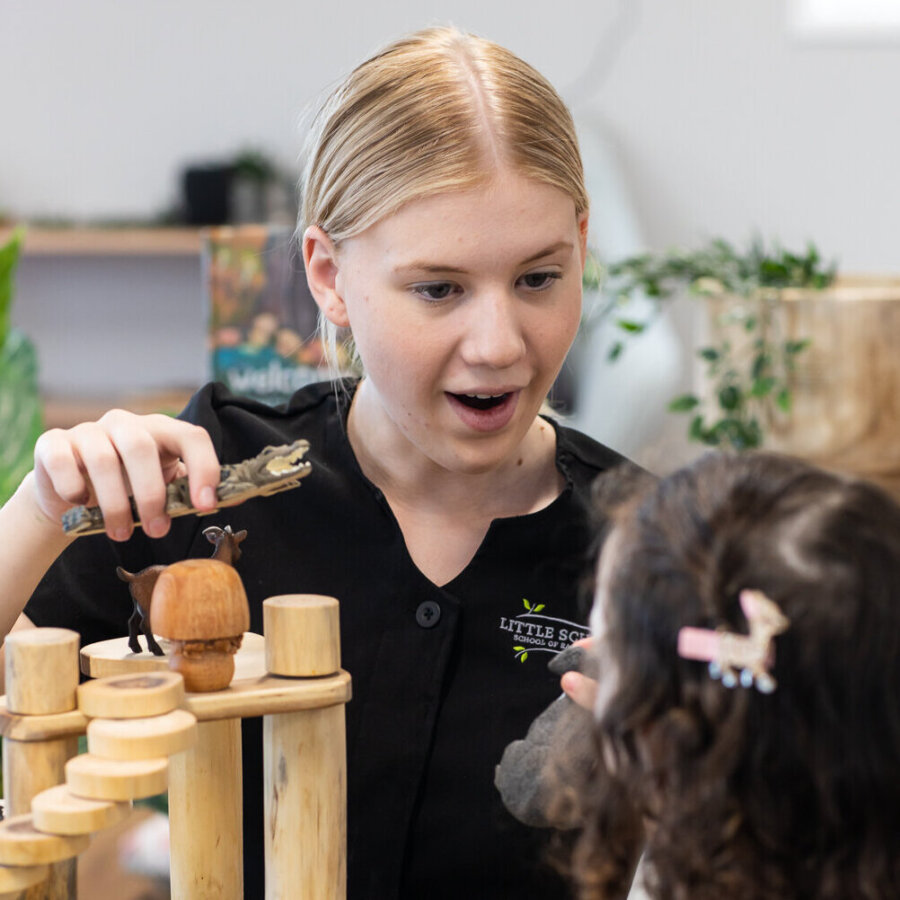
Learn – Little Scholars Pillar Award 2023
Learn more about Ellissa
Ellissa is a lead educator at our Ormeau Village campus. She was named winner of the Pillar Award in the Learn category because she stepped up to become a lead educator, and we’re told she is always happy to keep learning from her peers and further her education in the sector.
How long have you been an educator?
I’ve been an educator since I was 16, but even younger I was at my mum’s centre helping out wherever I could.
How long have you been with Little Scholars?
I’ve been with Little Scholars for about 18 months, since Ormeau Village opened.
What made you want to become an educator?
I think just having the inspiration of my mum being in that environment, seeing what she does, seeing how she helped shape the children, it made me want to do it as well. Just seeing how I could help children as well.
What did winning the award mean to you?
I’m always trying my absolute best to do the best possible work I can do, so it meant that someone else was seeing that, that it was appreciated. It’s made it feel worth it!
What do you like about working with Little Scholars?
Just the support and having the creative freedom to do things that I couldn’t do at other places. Like taking them on Bush Kinder adventures and all these other fun things they get to do that they may not have the opportunity to do anywhere else. And everyone at head office as well, like Susan, Mel and Jae-them being so active in our centre, that’s something I really appreciate as well.
On the quick move from an assistant educator to lead educator, Ellissa says:
The support I had helped me to grow so fast, because if I was somewhere else and didn’t have the support, I probably wouldn’t have become lead, but the support from everyone about what I could do, what I would have to do, really helped when I stepped up.
Ellissa is finishing up her studies with her Cert III, then she’ll be moving onto her Graduate Diploma.
From the award submission: Ellissa has stepped up into her Lead role during last year and we have watched her grow from assistant to well-deserved Lead and take charge in her space, leading her colleagues while taking feedback on board and striving to excel.
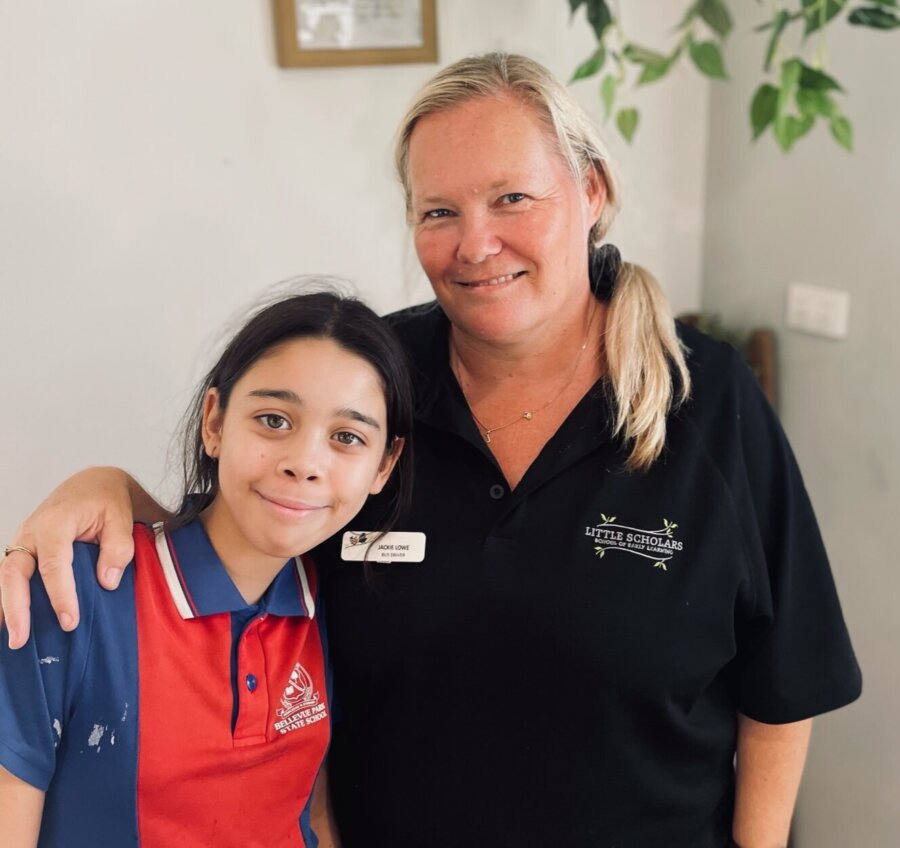
Contribute – Little Scholars Pillar Award 2023
Learn more about Jackie
How long have you been in educator?
I’ve been an educator on and off for about 20 years. I’ve been with Little Scholars for a year now.
Hey that’s pretty good to get recognised in your first year!
I know it was so good!
What’s made you want to become an educator?
Just from being young and starting off babysitting, which I loved, and then Year 12 back then we had work experience and that was just going to a centre and from that first day I knew what I wanted to do. I just fell in love with it, and from then it was my goal to finish school and become an early childhood teacher
What is it now, 20 years on, that you still love about working in this sector?
It’s just the love of being around children, i’m just being with a team of educators, and I missed that like when I went away from it and did my business, I just missed it so much. It’s just working children just gives me so much joy.
All my children are older, are grown up, and it was just not a grandmother yet or anything it was just that feeling, it just going back into a centre and it just makes me so happy.
You won the Pillar Award for ‘contribute’ and you’re known as a ‘jack of all trades’, what do you do?
No job is too big or too small! I do the bus, I’m the after-school care educator, I can work in the kitchen, I can listen to other team members, there’s nothing that I won’t try! That’s just who I am, when I’m needed, I’ll do anything to help the team out.
Especially your first year at Little Scholars, what did winning an award mean to you?
My goodness, it was just so good, firstly I was surprised, but it was then good to know that the little things that I’m doing are noticed, I felt like, ‘Wow I am noticed!’ It just made me feel so happy knowing that all the jobs that I am doing people have recognised it, so yeah so then makes you feel like you are doing a great job!
I love working for Little Scholars. It’s an amazing company, I’ve worked with the other centres before, Little Scholars is just amazing and I’m happy to be there and helping out.
In Jackie’s nomination, campus manager Elise said, ‘Jackie is our jack of all trades! Jackie fits many hats at our campus. From driving the bus to being in the studios to going on vacation care, she wears her many hats with a smile on her face. Her bubbly nature and willingness to help the team wherever needed is admirable. We appreciate her dedication and consistent contribution to the campus.
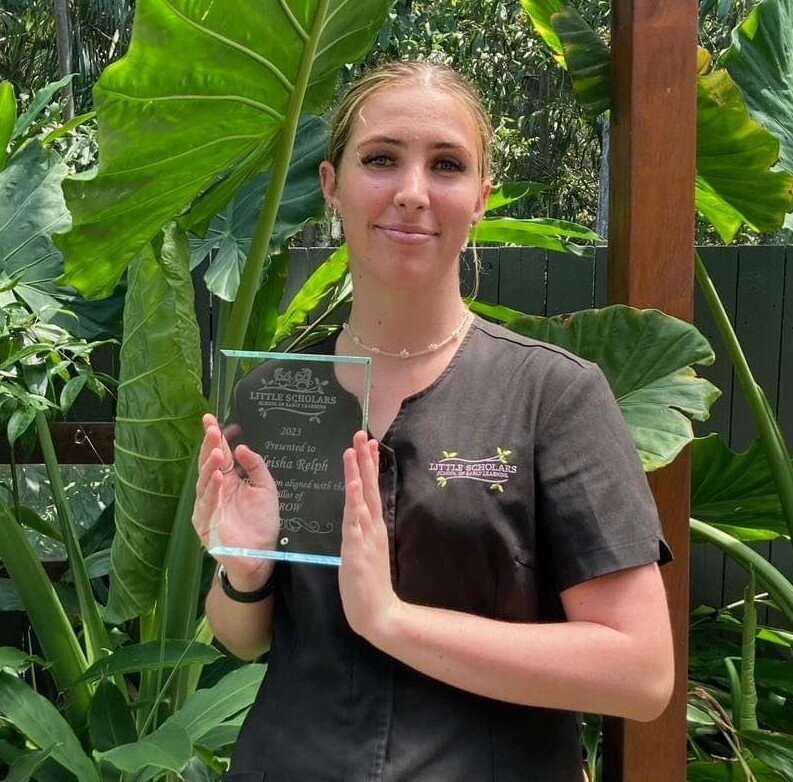
Grow – Little Scholars Pillar Award 2023
Learn more about Aleisha
Ellissa is a lead educator at our Ormeau Village campus. She was named winner of the Pillar Award in the Learn category because she stepped up to become a lead educator, and we’re told she is always happy to keep learning from her peers and further her education in the sector.
How long have you been an educator?
I’ve been an educator since I was 16, but even younger I was at my mum’s centre helping out wherever I could.
How long have you been with Little Scholars?
I’ve been with Little Scholars for about 18 months, since Ormeau Village opened.
What made you want to become an educator?
I think just having the inspiration of my mum being in that environment, seeing what she does, seeing how she helped shape the children, it made me want to do it as well. Just seeing how I could help children as well.
What did winning the award mean to you?
I’m always trying my absolute best to do the best possible work I can do, so it meant that someone else was seeing that, that it was appreciated. It’s made it feel worth it!
What do you like about working with Little Scholars?
Just the support and having the creative freedom to do things that I couldn’t do at other places. Like taking them on Bush Kinder adventures and all these other fun things they get to do that they may not have the opportunity to do anywhere else. And everyone at head office as well, like Susan, Mel and Jae-them being so active in our centre, that’s something I really appreciate as well.
On the quick move from an assistant educator to lead educator, Ellissa says:
The support I had helped me to grow so fast, because if I was somewhere else and didn’t have the support, I probably wouldn’t have become lead, but the support from everyone about what I could do, what I would have to do, really helped when I stepped up.
Ellissa is finishing up her studies with her Cert III, then she’ll be moving onto her Graduate Diploma.
From the award submission: Ellissa has stepped up into her Lead role during last year and we have watched her grow from assistant to well-deserved Lead and take charge in her space, leading her colleagues while taking feedback on board and striving to excel.
What an incredible asset online media has become when it comes to raising or educating children. From YouTube to Instagram, there’s a wealth of expert information at your fingertips that previous generations simply didn’t have. Thanks to online media, parents and educators can now access an array of information, tips, and tricks on child development, parenting, and education.
And of course, podcasts are an excellent way to learn while on the go. You can listen to them while commuting, during your daily walk, or even before bed. Here we have compiled a list of our favorite parenting and child development podcasts, divided into categories for parents and educators. Check them out!
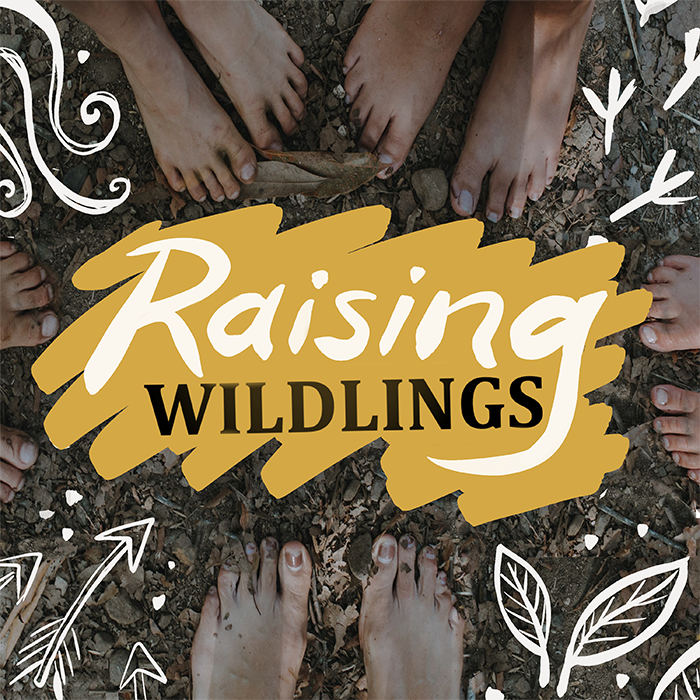
A podcast about parenting, alternative education and stepping into the wilderness with children. Each week, Nicki Farrell and Vicci Oliver interview experts who inspire them to answer questions about parenting and education. They also share stories from families who took the leap, and are taking the road less travelled.
Maggie Dent, one of Australia’s favourite parenting authors and educators gives you practical tips and answers to your real-world parenting dilemmas.
Each episode of Unruffled addresses a reader’s parenting issue through the lens of Janet’s respectful parenting philosophy, consistently offering a perspective shift that ultimately frees parents of the need for scripts, strategies, tricks, and tactics.
Listen to conversations with experts on a variety of topics related to children’s mental health. Episodes offer practice wisdom from experts in the field and will give you an insight into the work and values of the National Workforce Centre for Child Mental Health.
Based on the popular RCH Kids Health Info fact sheets, the Kids Health Info podcast explores common topics and concerns with experts in children’s health. Hosts Margie Danchin, Lexi Frydenberg and Anthea Rhodes are all paediatricians and mums, so they know first-hand what keeps parents up at night. Every episode features guest experts in a range of child and adolescent health specialties, and lots of practical tips and advice.
Hamish Blake chats with other dads he really admires about their approach to ‘dadding’, and in the process hopefully learn a little, steal some of their hard earned wisdom and help dads dad a tiny bit better.
All humans learn through play. Join Kristen RB Peterson of Learning Wild as she chats all things early childhood education, preschool, nature and forest school, homeschool and parenting.
Hosted by international keynote speaker, educator and founder of Wearthy; Lukas Ritson, Play it Forward is an educational podcast about the importance of play. With the increase of technological advancement, it has never been harder to get kids playing outside
Early Childhood perspectives is a fortnightly podcast devoted to exploring the often overlooked concepts and issues of the Australian Early Years Sector.
This podcast covers meaningful topics in early childhood education with some of the sector’s most experienced educators and subject matter experts. With each short episode, its aim is to provoke minds and inspire excellence in early childhood education.
Barbi Clendining from Firefly HR and Saurubh Malviya from We Belong Education have teamed up to bring to you a fun and informative conversation and talk about every aspect of the Out of School Hours profession.
OK, we fibbed. It’s not JUST Australian podcasts. Here’s a few international podcasts that are quite popular with the kids these days. (and by kids, we don’t mean baby goats, or children really, but we’re just trying to sound cool)
Building creativity one leaf and bolt at a time. Join Dr. Carla Gull, American educator and mother of four boys, as she talks about getting outside and exploring loose parts.
A funny take on parenting with UK hosts Rob & Josh as they share their tales of parenting woe and chat to celebrity parents about how they’re coping, or not coping.
Join American clinical psychologist and mother of three Dr. Becky Kennedy on her weekly podcast, as she takes on tough parenting questions and delivers actionable guidance—all in short episodes, because we know time is hard to find as a parent. Her breakthrough approach has enabled thousands of people to get more comfortable in discomfort, make repairs after mistakes, and always see the good inside.
Each episode discusses issues today’s fathers face navigating work, parenthood, relationships and play. We share stories of dads who are active and engaged in the decisions, the drudgery, and the pains and the joys of parenthood. Our parenting podcast not only brings modern dads into the conversation, but also – regardless of gender – our spouses and partners, friends and colleagues, and leaders in business, entertainment and media.
Babies are a mysterious bunch. For many months, their main forms of communication are cries, squeaks, gestures and coos. Parents fall madly in love with these little humans without knowing what they’re thinking and feeling, often just guessing at best.
How babies play, how and what they’re learning, and what they’re interested in can be a mystery to many. Many parents have seen their baby pull out every book off a shelf, for example, watch it fall, then grab another, while that parent scratches his or her head and says ‘why?’
Babies are a mysterious bunch. For many months, their main forms of communication are cries, squeaks, gestures and coos. Parents fall madly in love with these little humans without knowing what they’re thinking and feeling, often just guessing at best.
How babies play, how and what they’re learning, and what they’re interested in can be a mystery to many. Many parents have seen their baby pull out every book off a shelf, for example, watch it fall, then grab another, while that parent scratches his or her head and says ‘why?’
There’s an answer. It’s a schema. A schema is both a category of knowledge as well as the process of acquiring that knowledge. In play, babies are often involved in repeated actions or certain behaviours as they explore the world around them and try to find out how things work. Those repetitive actions, such as a baby pulling out book after book, allows a child to practice and construct meaning to something, until they’ve understood that schema. Then they find something else to focus on and lather, rinse, repeat!
As Yvette, educational lead from our Burleigh campus says, it’s children’s development making sense.
“All of those little things that you see children do that seem a bit cute, or frustrating even, like throwing, it’s a schema, a child’s pathway of development for making sense of the world,” Yvette says.
The repetitive action of a schema allows a child to practice and construct meaning until they have mastered the understanding of the schema. Being aware of play schemas helps in two ways:
There are a number of types of schemas when it comes to babies.
Trajectory schema – The trajectory schema is one of the earliest schemas observed in babies. They are fascinated with how they, and objects move. Children will often throw objects or food from their pram or highchair. They climb and jump in puddles and enjoy exploring running water.
Transporting schema – Little ones enjoy repeatedly moving resources around, from one place to another. They will carry many items at a time using their hands, pockets, containers,
baskets, bags, or anything else that will hold their newfound treasures.
Enclosing schema – Children show an interest in enclosed spaces. They may want to sit (and hide in) boxes or laundry baskets. Or they may show interest constructing fences and barricades to enclose toy animals or themselves.
Rotational schema – Children showing a rotational schema may display a preference for turning taps on and off, winding and unwinding string, and playing with
hoops. They may also be fascinated with the physical experience of twirling and twisting their body, spinning around on the spot, or rolling themselves down a hill. They have an interest in things that turn, such as wheels and windmills. They enjoy rolling tyres around, turning lids and watching the washing machine on a spin cycle.
Enveloping schema – Children with an enveloping schema are interested in covering and hiding items, including themselves. They will enjoy dressing up, and filling and emptying bags and containers with different objects.
Connecting schema – Children displaying the connecting schema want to join items together. They find resources like string to tie things. They connect and disconnect toys such as rail tracks.
They enjoy construction toys, and doing arts and crafts where they can glue and stick pieces together.
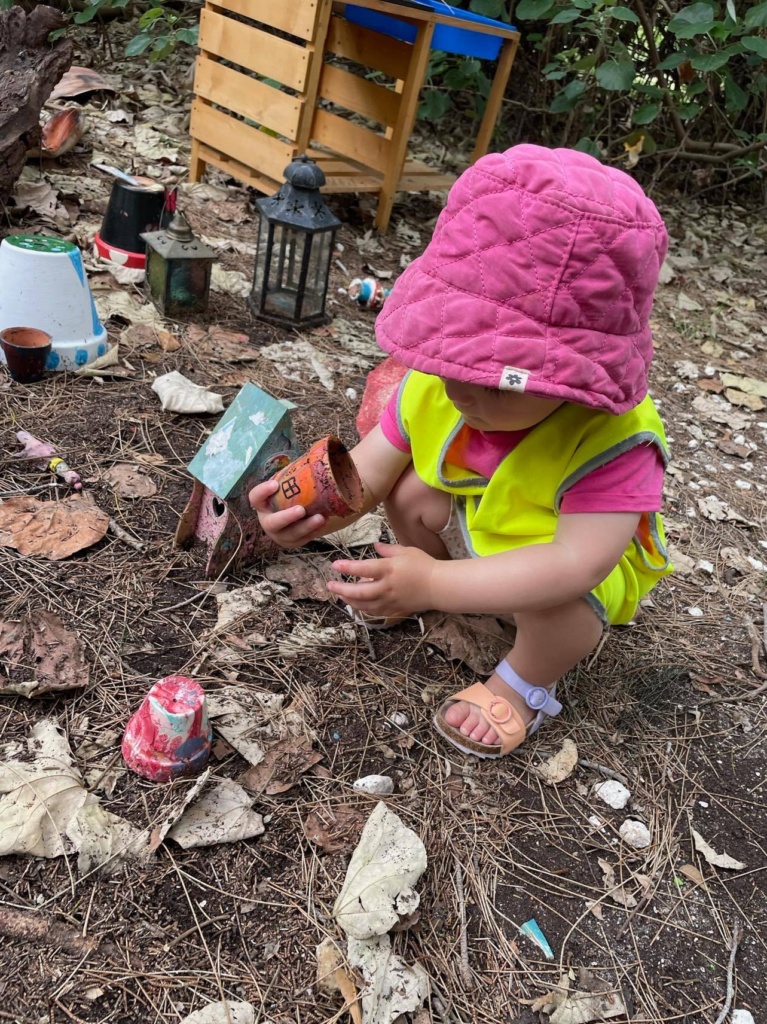
Orientation schema – Children like to turn objects and themselves around and upside down, to get a view from under the table or from the branch of a tree. They may bend over and look at the world backwards through their legs. They enjoy seeing things from a different view when exploring using cardboard tubes, binoculars or a magnifying glass.
By adapting this theory, we have been able to slow down and become more in tune to the children and noticing their behaviour patterns in play. It is now so important to us that we allow our babies and young children the time to explore the repetitive actions of schematic play.
-Jodie, lead educator
Jean Piaget was one of the first to use the term “schema” back in 1923. Piaget was an important child development theorist and his Theory of Cognitive Development was and still is read and followed today by early childhood specialists. He was one of the first who believed children think differently than adults and that they have an innate desire to learn and actively build up their knowledge about the world. They are not passive creatures waiting for someone to teach them.
Susan, our group pedagogical leader, is bringing her schema knowledge across our campuses to the lead educators in the nursery and toddler studios in 2023. Learn a bit more below about how we use schema theory, and how one educator has taken it on in her nursery.
Schematic Pedagogy
Through our collective curriculum, our educators are guided through a ‘schematic lens’, meaning they can plan for children’s thinking, not just activities. This has a strong link to our Collective Curriculum, our educational program for children.
The learning environment
Our educators apply teaching methodologies to design their play spaces and are intentional in the resources offered.
Observing and planning for children’s thinking
Through our collective curriculum, our educators observe the children through their play, to determine schemas explored through the children’s engagement to an activity or resource. Through observing patterns of learning, our trained educators can plan forward to scaffold their cognitive capabilities.
Partnering with children in play
Through ongoing mentoring and coaching, our educators are able use their knowledge of schemas and plan effectively. Our educators are encouraged to partner with children in their play and observe behaviours explored through schemas.
“Schemas are an intrinsic part of child development, knowledge to schemas provide our team of educators an opportunity to identify and encourage independence in children as they explore patterns of movement, often related to schemas,” Susan says. “Supporting assessing through a schematic lens, provides our educators with a framework which can be used to analyse children’s learning, supporting the planning process within our curriculum.”
You may be wondering if you have a baby or a small toddler in one of our campuses, how we use schemas to help their development. We talked to one of the educators at our Deception Bay campus about using schemas for educational programming. Deception Bay Little Scholars was recently rated as Exceeding the National Quality Standard (NQS) after it was assessed by the Department of Education. The NQS sets a high national benchmark for early childhood education and care in Australia. Jodie, lead educator in the nursery studio, says learning about schemas was a game-changer.
Both our younger babies and older babies really enjoy dropping objects or putting things in and out of containers (vertical trajectory). Using old formula tins and cutting an opening in the top with lids from jar foods a milk bottle lids, is a big favourite.
Our older babies are seen continuing with trajectory and begin to start exploring other forms of schematic play like, transporting, rotation, connecting and this can lead to a disconnecting schema where the child builds something that they can demolish or through [activities like] untying knots, as well as enclosing, positioning, enveloping and orientation, such as looking at things from different viewpoints like hanging upside down, looking through their legs, looking at things upside down. No wonder our little people are so busy and on the go all the time!
Thanks, Jodie!
Related:
Pedagogical Practices: Bringing new learning techniques to Little Scholars
Looking for an easy snack to make with ingredients from home? Here is one of our delicious snack items from our Little Scholars menu. We had to share this recipe as it is super easy to make and you can add whatever toppings you want! You probably already have these ingredients in your kitchen!
This recipe makes approximately six scones. You can double this recipe if you wish to freeze them for later or to feed more people!
Serve with your favourite toppings like Jam and Cream for an extra yummy treat!
Take the time to tell them why they can’t. Statements such as “Because I said so” or “Because I told you so” are not efficient in this situation as you aren’t giving them an appropriate reason instead of just saying no to children. This is important as it lets them come to peace with your decision, but also acknowledge their feelings as well.
“It’s expected to be disappointed, I would feel disappointed too.”
If they are angry or frustrated, they might need to expel some energy outside for a few minutes, take some deep breaths, do some colouring in to calm down or maybe even have a rest.
Once the boundaries have been set and your child is aware of your feelings, we also want to offer choices. For example, if they aren’t wanting to get dressed for the day, give them a few options and ask them to choose what they would like to wear. This gives your child a sense of independence and control in the situation.
We want to remind our children of their choices when they are challenging your boundaries. It’s important to keep consistent and follow through with expectations that have been made clear to them. Follow through with your consequences and reinforce their behaviour when they do respect your choice.
Modelling an appropriate behaviour can also be effective. For example, if they are patting the dog a little too aggressively, show them what to do by patting the dog softly and telling them what the dog likes.
If you are stressed in the situation, let your child know. Tell them “I am going outside for some fresh air for a few minutes, I’ll be back when I’m feeling better.” This shows your child how to respect other people’s boundaries as well as their own.
Learn how our team at Little Scholars handles saying no the children and other areas of concern. Contact us today.

Little Scholars Educator Holly says “Instead of saying “no” to running inside, we often say “Stop. What feet do we use inside?” Or “Do you think what you’re doing is a good choice?”.
If a child is jumping off furniture we get down to their level and ask them “What is the chair used for?” “A chair is for sitting on.”
Sometimes we have children who want to keep the tap on in the bathroom just to experiment with the water and its cause and effect. During these times we ask the children “What are the taps used for? “They are for washing our hands.” “I understand you might want to play with water and feel different textures, so how about we set up a fun water experience instead?” Something more appropriate and positive to redirect.
Empathising with children during challenging behaviors is so important. Children want to be heard and understood like us adults do. Providing children with appropriate suggestions and redirection is more positive and beneficial than just saying “no” all the time. It doesn’t always allow the children to critically think as to why are they doing what they’re doing and what they can do instead.
Little Jarjums is a Children’s Indigenous dolls and clothing line created and designed by Emily Rose, a proud Ngarabul woman born and raised on Quandamooka country (North Stradbroke Island) and mum of two.
Emily started making First Nations dolls to help her make an income to support her education studies and growing family. We believe these dolls are a perfect way to start teaching little ones about Australia’s First Nations history. Emily shares her background with us and the idea behind the creation of these beautiful dolls.
I’m a proud Korri Women from Jimiji/Ngarabul tribes. However a 4th Generation born and raised in Goompi – Dunwich on Minjerribah North Stradbroke Island, Qumdamooka country. Being the 4th Generation to grow up away from country, I longed to learn my own language dance, song and culture. I always felt that missing part in me, however I am very grateful to have grown up in a community where dance and culture is alive and feel honoured to be a part of it.
I fell pregnant with my daughter at 15 in 2019. My main goal and focus as a mum is to educate my daughter around her own culture. I started this by making her an aboriginal doll we named the doll “Capeembah” this is what the Nunukul people call the ‘fresh water spring’, that has been renamed to Myora. Connecting to my daughter’s name, Myora-Rose.
In 2021, I was meant to start my university journey into education. However, I fell pregnant again and felt the time wasn’t right to start. I was encouraged by my Aunty Delvene Cockatoo-Collins to start my own business. Making Indigenous dolls. Creating the dolls gave me something to do and was able to make a little side income to support my growing family. So ‘Little Jarjums’ was born.
Emily’s dolls are being distributed to all Little Scholars campuses and will make for a beautiful addition to our rooms. The Little Jarjum’s dolls are an amazing way for children to learn about the culture, as well as a beautiful way for our educators to incorporate the Indigenous heritage into everyday learning.
Children learn a lot from their environment, which is why at Little Scholars we put effort into ensuring we offer toys, books, and music from around the world to reflect different cultures. We celebrate different cultural events, including making foods so the children can discover different flavours.
Engaging children in culturally-responsive experiences is a great way to build their self-confidence, increase their knowledge and teaches them to always accept others for who they are. Our educators play a vital role in acknowledging cultural differences and helping the children feel like they belong. If we encourage children’s understanding of differences and appreciation of diversity in all aspects of life, we set them on a path to become kind and compassionate people.
Jae, founder of Little Scholars said, “I was so excited when we found Emily-Rose to provide us with handmade local toys for our campuses. We are always looking for creative and meaningful ways to embed Indigenous culture into or curriculum and daily practise. We know the further implementation of Aboriginal and Torres Strait Islander cultures will enhance early learning educational outcomes. It will build on levels of cultural awareness, understanding and bring change for an education journey that children can thrive in, so these dolls are a perfect fit for our incredible educators to use for this purpose.”
At Little Scholars School of Early Learning, we’re dedicated to shaping bright futures and instilling a lifelong passion for learning. With our strategically located childcare centres in Brisbane and the Gold Coast, we provide tailored educational experiences designed to foster your child’s holistic development.
Let us hold your hand and help looking for a child care centre. Leave your details with us and we’ll be in contact to arrange a time for a ‘Campus Tour’ and we will answer any questions you might have!
"*" indicates required fields